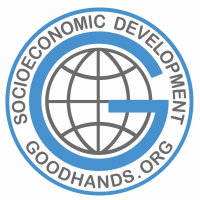Hosting Learning Centers Abroad: What International Partners Can Offer
Hosting a Learning & Resources Center is one of the most direct ways international partners can support education access. While GoodHands provides structure and content, the host creates the environment where learning becomes real. This section outlines what hosting involves—from providing space and equipment to mentoring and visibility. Hosts do not need advanced facilities or teaching experience. They need commitment, trust, and a basic setup that makes group learning possible. Hosting is not just a support role—it is a bridge between digital tools and human connection.
Creating a Consistent and Welcoming Space
Learning Centers do not require perfect classrooms. They require safe, clean, and consistent spaces where small groups can meet regularly. A spare room, church hall, or office space may be enough. What matters is that learners feel welcome, focused, and respected. Chairs, a table, and a printed learning chart can create structure. Hosting Partners commit to offering this space—often weekly—so that learning becomes routine. These places give learners more than access to materials. They give them stability, community, and a reason to keep coming back.
Supplying Simple Equipment for Offline Learning
Many learners do not have internet or electricity at home. That’s why Hosting Partners help provide small-scale, offline tools: USB sticks, audio players, preloaded laptops, or phones with local content. No advanced systems are needed—only access to MP4 files and a way to play them. Partners may copy files onto devices or coordinate use in the Center. GoodHands offers compressed formats to ease transfer. With a few basic tools, even remote groups can complete structured lessons. Equipment is not the core—it is the enabler of consistent learning.
Mentoring and Group Coordination
Hosting also means supporting the human side of learning. Partners identify facilitators who lead groups, answer questions, and help maintain rhythm. These are not teachers, but community members who receive training materials and basic mentoring. Hosting Partners may check in weekly, provide encouragement, and help solve local challenges. The goal is not control but continuity. When hosts stay connected to their groups, they build trust and accountability. Mentoring is often what makes the difference between passive access and active learning.
Visibility and Long-Term Impact
When partners host a Center, they signal commitment to education and local empowerment. Their name becomes visible, their work seen. This visibility helps build trust in the community and can attract further support. Hosting also creates continuity for the learners. It shows that someone cares and believes in their growth. Over time, these Centers become more than spaces. They become learning communities. For the partner, the reward is not only impact—it is connection, purpose, and the chance to support real change in a grounded and lasting way.

